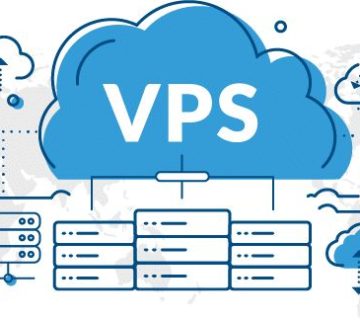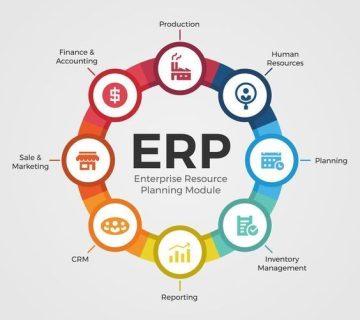If you’re reading this, you’ve probably heard of blockchain technology. It’s perhaps the most talked-about topic in business right now. Even if you’re not as familiar with blockchain as you should be, you’ve probably heard of Bitcoins. Bitcoins were the first application of blockchain technology. They transformed the financial sector and how businesses conduct transactions. Blockchain technology is one of the most disruptive and revolutionary technologies to have emerged in the past few decades. It’s that big of a deal. This article explores how blockchain technology in accounting has transformed the sector. You’re about to discover what it is, why it’s so disruptive, and how it’s already impacting accounting. However, you can check our other articles on blockchain technology before you proceed. So, let’s get started.
What is Blockchain Technology?
Blockchain is a type of digital ledger. It’s a digital record of everything that takes place in a certain period. Why are ledgers important? They’re important because they allow parties to transact with each other without relying on a third party. A ledger has two main functions: It allows parties to maintain a record of what they own. Also, it allows parties to transfer assets from one person or company to another in an efficient and verifiable way.
Why Is It So Disruptive?
The whole concept of a centralized ledger is an outdated and inefficient way to manage a business. The problem with a centralized ledger is that a third party controls it. This means that accounting data is often inaccurate and incomplete. It also makes it difficult to verify who owns what. That all changes with decentralized ledgers, like the blockchain. Blockchain technology in accounting makes it easy for parties to record transaction data and verify it. That’s why it’s so disruptive. It completely disrupts the way businesses manage their financial data and confirms who owns what.
The way that data is stored and verified will significantly impact how businesses track their financial activities. Industry professionals expect enterprises to adopt blockchain as a trusted way to store data widely. For accounting professionals to meet the growing expectations of their stakeholders, they will also need to adopt blockchain.
How is Blockchain Technology Already Being Applied in Accounting?
There are two primary ways that accounting professionals use blockchain. The first is as a technology to help enhance the data recorded in accounting, audit, and finance. The second is as a way to verify the authenticity of digital assets. Let’s take a look at some of these applications.
Smart Contracts
The use of blockchain to ensure the enforceability of contracts is one of the more popular blockchain applications in accounting. A lucrative sector targeted for smart contracts is the cryptocurrency industry. That’s because it’s complicated to track the origins and ownership of cryptocurrencies. Blockchain makes it easy to track transaction data and verify the authenticity of digital assets. That’s why companies use it to safeguard smart contracts in cryptocurrency deals.
Initial Coin Offerings (ICOs) are growing in popularity thanks to their ease of use and simplicity. These digital asset offerings are an excellent way for businesses to generate capital. If you’re working in accounting, it’s good to keep an eye on the ICO space. There are a lot of ICOs coming up that have the potential to shake up the accounting industry.
Blockchain also has the power to protect accounting data from cyberattacks.
It’s widely accepted that most cyberattacks are directed toward financial data because it’s valuable. Keeping accounting data on the blockchain ensures it is out of reach of hackers. In addition, blockchain is tamper-proof, so it’s very difficult for hackers to access data.
Digital Authentication
Digital authentication is the practice of verifying the authenticity of digital assets. Authentication and verification are critical aspects of accounting. It makes it easy to know that a digital asset is precisely what it claims to be and who the proprietor is. Digital authentication is a critical component of the Internet of Things (IoT) ecosystems. IoT applications are another sector that’s being targeted by digital authentication.
Digital assets can be anything in these applications. It can be a car, a home appliance, or even a piece of art.These assets are now connected to the Internet and can receive data updates. When it comes to the safety and security of these assets, a digital authentication system becomes critical.
What’s Next for Blockchain in Accounting?
The potential applications of blockchain in accounting are endless. The industry is just starting to scratch the surface of what’s possible. There are a lot of exciting things happening. The best thing about blockchain technology is that it has no single point of failure. It makes it possible for parties to record and verify data without third-party assistance.
In addition, with blockchain, businesses can record any data and verify that data at any time. This enables companies to track assets, record transactions, and verify who owns what in the blockchain space right now.
The most notable trend is the emergence of new ICOs. ICOs are funding mechanisms that let startups raise funds through the sale of digital assets. To give you an idea of how lucrative this trend is, ICOs raised $3.7 billion in 2017. That’s a considerable increase from 2016’s figure of $906 million. This is another sign of the disruptive potential of blockchain technology in accounting.
Challenges
Despite the significant impact of blockchain in accounting, security is still a significant issue that industry professionals need to tackle. According to EY, cyber-attackers stole more than 10% of Initial Coin Offering funds. In addition, security issues will stagnate the adoption of blockchain technology companies. Therefore, the industry needs to act fast as blockchain technology is one of the most promising technologies to have emerged in recent years. It’s fundamentally changing the way businesses store and verify data. As a result, fraud, embezzlement, and accounting omissions resulting in losses have drastically reduced.
At Softlink Options, we work with all organizations that require data security solutions. Check out our data backup and web hosting packages. We take great pride in the quality of our products and services.
CONTACT US in case of any queries. We take pride in the quality of our products and services.


